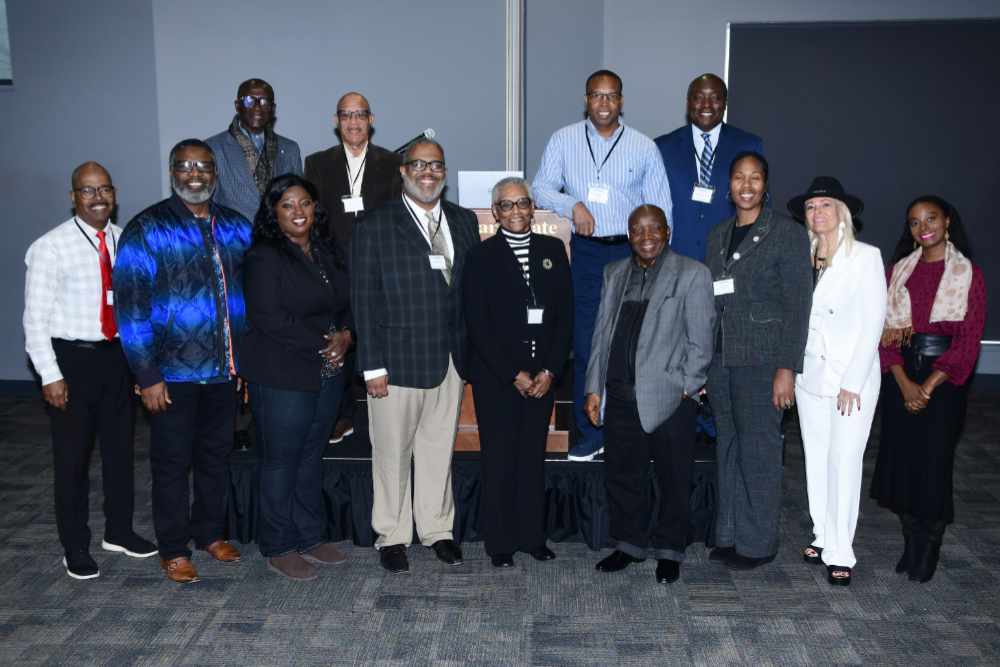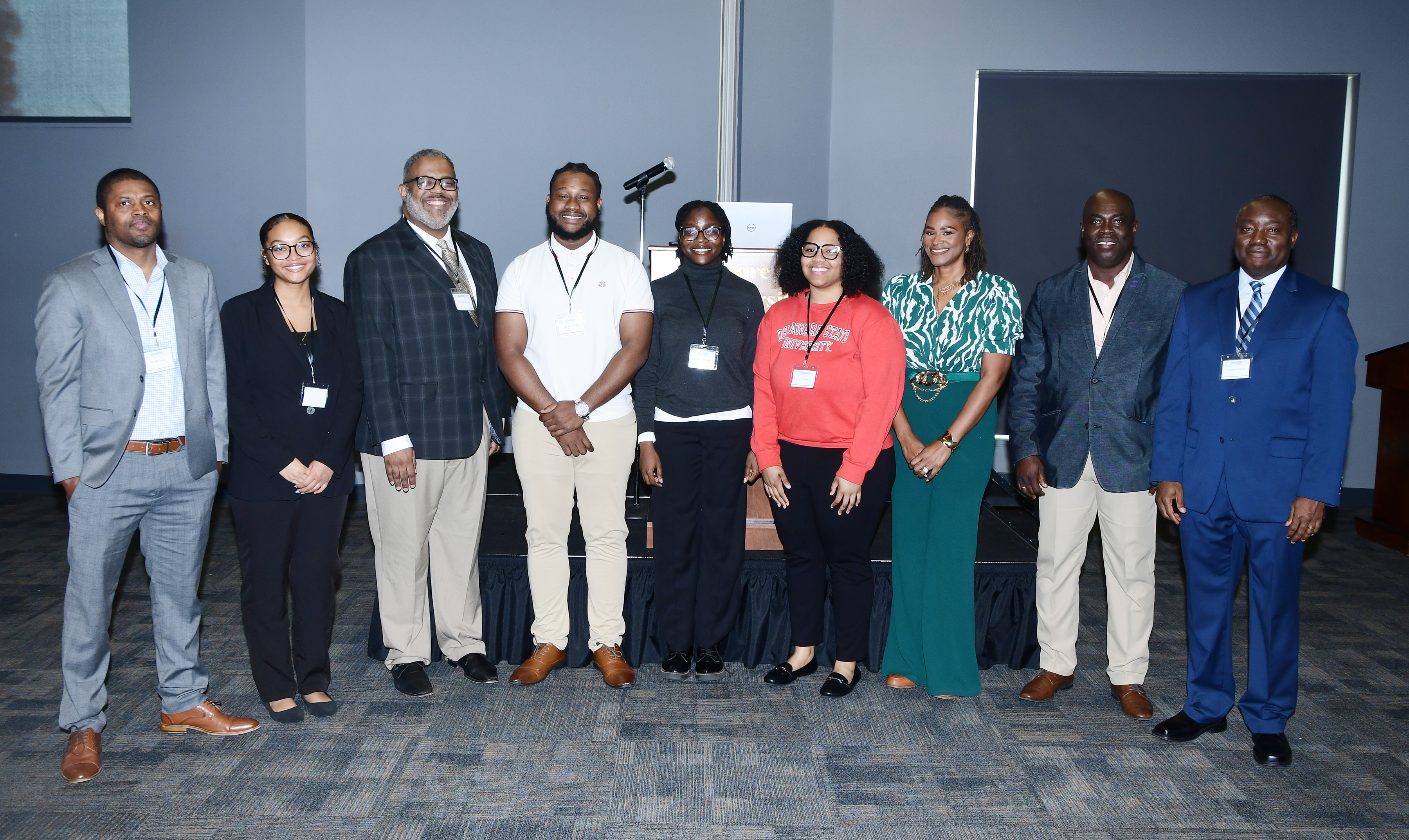
DSU Health Literacy Research findings presented
Dr. Raymond Tutu, Professor of Global Societies, has completed a three-year research project on health literacy and its correlation to health outcomes and recently reported his findings.
Dr. Tutu’s methodology for the research involved enlisting 60 faith-based organizations that predominately serve minorities in the State of Delaware. Together with those organizations, health literacy questionnaires were distributed to their members, resulting in 1,095 participants in the study. Pastor and church leaders from some of those churches gathered in the Martin Luther King Jr. Student Center on Dec. 4 to hear Dr. Tutu’s presentation on the findings and to collectively discuss more effective and efficient ways to promote health literarcy.
Dr. Tutu said that churches play important roles in the lives of their members with respect to health. This includes organizing varying forms of health promotion activities.
“Therefore, it is anticipated that church attendees will be impacted by the health information shared during such activities. The study sought to assess the health literacy levels of congregants,” Dr. Tutu said. “The results will inform the participating churches on aspects of health literacy activities to undertake to increase health literacy of their congregants.”
The research was based on the understanding that poor health literacy results in negative health outcomes and increased health disparities, leading to health disorders such as high blood pressure, high cholesterol, and poor disease management.
The study examined the health literacy levels of research subjects with regard to the extent to which the participants were able to access, understand, appraise, and apply health information.
The study found that 52% of the participants had inadequate or problematic levels of health literacy. While 48% of the respondents were determined to have sufficient health literacy, the degree of low health literacy among the other half of the participants is troubling, Dr. Tutu said.
“Health literacy significantly influences health outcomes,” Dr. Tutu said. “The high proportion of people expressing difficulty in accessing, comprehending, and using health information from the health care, disease prevention, and health promotion domains in Delaware will require a purposeful collaboration to reverse the low health literacy levels.”
Rev. Dr. Maribel Zaragoza, co-pastor of Maranatha Life Changing Church, commended the research for recognizing that churches impact their communities in powerful ways and noted that this project shared information on how faith-based organizations can more efficiently increase health literacy.
“The Bible says that where there is unity and alliance, there is strength,” said Dr. Zaragoza, who is also a licensed physician. “We were able to come together as churches and share information.” 
Dr. Tutu’s DSU Research Team included: (l-r and pictured in the nearby photo) Dr. Nii Tawiah (Assistant Professor), Janiah Maltbie (student), Rev. Dr. Turhan Potter (Academic Program Manager), Mr. Matthew Charles (student), Ms. Adesola Akinwale (student), Ms. Tori Lofton (Student), Mrs. LaToya Dennis (Administrative Secretary), Mr. Emmanuel Oppong (Adjunct Assistant Professor), and Dr. Raymond Tutu (Professor and PI of project)
The research was funded by a $622,000 National Science Foundation grant. Dr. Tutu’s research paper on this study will be published later this month in the science journal Discover Social Science and Health.

